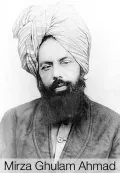When Belgian media wrongfully stigmatize and fail to publish the judicial truth: the case of Jehovah’s Witnesses (1)
HRWF — Le Soir, La Capitale Sud-info, Bruxelles News, Nieuwsblad, VRT Nieuws and Bruzz who had very imprudently reported in 2018-2019, as a breaking news, the alleged failure of the Belgian Jehovah’s Witnesses association to report sexual abuse in their midst were the only media outlets to report about the 5th October 2021 court decision dismissing the charges against this religious group.






















